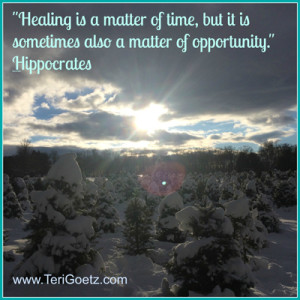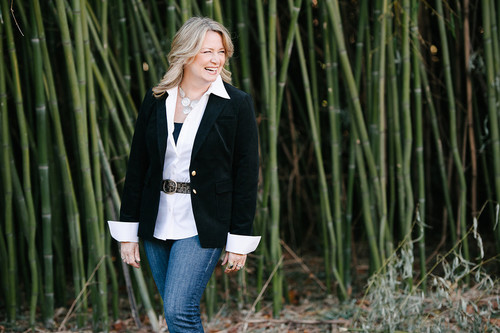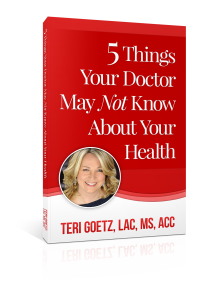DR. TERI GOETZ
Find the Cause. Treat the Root. Heal Yourself.
Find the Cause. Treat the Root. Heal Yourself.
Diagnosis as Life Lesson: What you can learn from being sick
 Roughly 80% of our health has to do with lifestyle, 20% with genetics. That means that mindset—the way you think—has an awfully big impact. On what? Everything. Like the choices you make in your healing and life and the way your body reacts to treatments, supplements, and body work.
Roughly 80% of our health has to do with lifestyle, 20% with genetics. That means that mindset—the way you think—has an awfully big impact. On what? Everything. Like the choices you make in your healing and life and the way your body reacts to treatments, supplements, and body work.
So what IS a healing mindset? It’s more than pushing yourself to have “positive thoughts.”
How can you figure out where your mindset and subconscious are thwarting you? Ask the tough questions. Don’t shy away from the truth.
I suggest that you take time to reflect and write, daily if possible. Journaling gives you the clarity that just “thinking about it” cannot. It is too easy to brush off, or forget, thoughts, but if you write them down, you can revisit and reassess and confirm to yourself what process you are undergoing. Here are some of the questions I asked myself and the answers I found:
What am I to learn from my illness?
First: I learned that I have to set boundaries. I also have to trust my own intuition and not defer to the opinions of others who either have their best interests at heart, their own agendas, or don’t understand my true desires and core values. And that goes for medical professionals I’m paying lots of money to! Did I need the expertise of others in areas I wasn’t strong in? Of course—but I stopped listening to myself if I felt insecure. Through this process I have learned to listen to my intuition. I also learned that I know what my body needs and it is my job to provide it in order to maintain the temple that houses my mind and soul.
How does my illness serve me?
I know the body responds to the mind, and if I wanted to get to the root of the mindset part of the equation I had to be brutally honest with myself. So, after a lot of journal writing and soul searching (and yes, getting input from trusted friends who asked the even harder questions) I realized that my illness allowed me to avoid stepping into all I could be. It also gave me a respite from the years of caring for others at my own expense (can you spell M.A.R.T.Y.R.?). It wasn’t the kind of martyrdom of “I do this for you why can’t you do something for me—look at what a victim I am. Come save me.” (That’s what I did during my divorce at first!) No, this was more like, “If I suffer by helping others at my own expense, it means I’m a good person and others will like me.” It was also a passive aggressive way of slowing down. I couldn’t make the conscious choice to slow down. My body had to teach me. Lesson learned!
For me, autoimmune disease was the ultimate act of self-sabotage coming straight from the subconscious. Think about it. My body was literally attacking itself. Of course, I was sick. I felt sick. But I had to ask myself, where did it originate? What part of me started this whole thing? Ultimately, I was denying what I knew to be true about myself: I am a healer, but I wasn’t healing myself.
It was understandable on one level. After going through my divorce, starting a wellness center, and being a single mom, I think I told myself how hard life was for me. I told myself I was tired from taking care of everyone. I believed it. It wasn’t until I went through training to be a coach that I did the personal work I needed to do. Then, I helped a lot of women make changes in their own lives.
Ultimately, I’m now able to pull all the pieces together and do what I was really put on this earth to do: Help people heal themselves, with guidance.
So what were my gifts and lessons from my diagnoses?
- To empathize with the patients I would ultimately be working with.
- To learn how to set even stronger boundaries.
- Not to put myself toward the bottom of my priority list. Work is not more important than health.
- ALWAYS trust my intuition: whether it’s about someone’s suggestions, or my own knowing about my body’s needs. Next time I won’t need the Universe to hit me on the head with a 2×4!
- No one will like me more if I suffer more. Ever. I don’t have to put other’s needs before my own. (And neither do you.)

